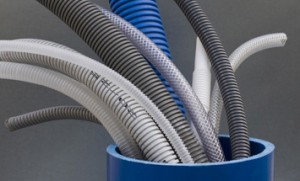In addition, it will have seven facilities specialising in the production of vinyl chloride monomers and nine chloride-producing plants.The new organisation, which is to officially begin its operation at the end of the second quarter/beginning of the third quarter of this year, plans to achieve an annual revenue of approximately3 billion Euro and will be capable of producing 3,41 million tonnes of polyvinyl chloride a year.In the course of the last year, similar mergers and take-overs have taken place in the PVC industry:Westlake bought Vinnolit and Mexichem took over Vestolit.Platts claims that such transactions may lead to a change in the price policy in 2015.
The reason for the lower PVC production in Europe is the new EU law which bans the use of the mercury cell technology in the production of chloride after December, 2017.Currently, around a quarter of all the lines responsible for chloride production use such cells. Their replacement with membrane cells is a very costly process. So far, only BorsodChem has taken up the challenge and is planning to rebuild its installation by the deadline date.Central European producers are to lose approximately 500 thousand tonnes of production capacity a year, while western Europe may lose three time that.

